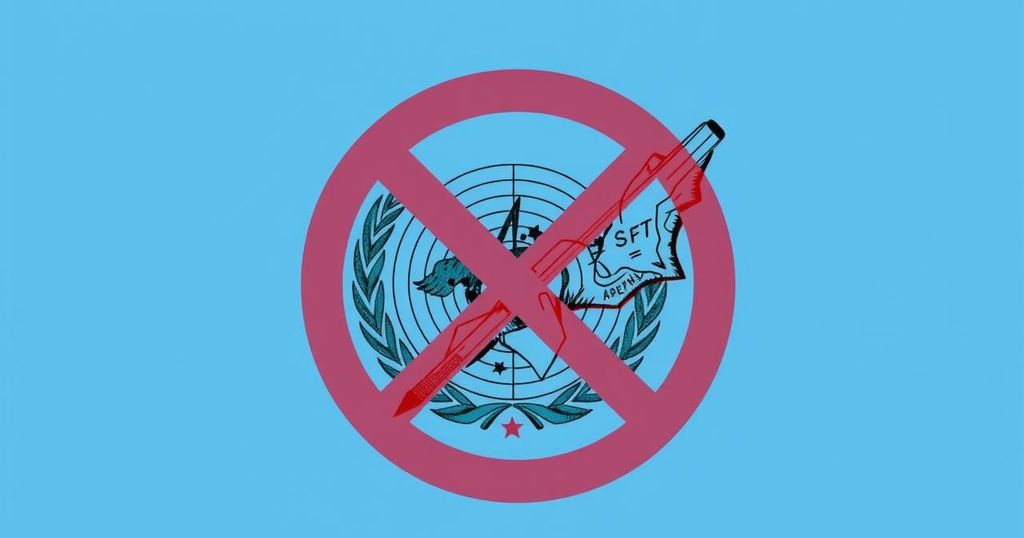Argentina’s Controversial Vote Against UN Gender Violence Resolution

Argentina voted ‘no’ on a UN resolution aimed at ending gender violence, making it the only nation to do so, a surprising move under President Javier Milei. This decision signifies a significant shift from Argentina’s traditionally progressive stance to aligning more closely with conservative ideologies, echoing the foreign policy adjustments seen under leaders like Donald Trump. The vote has led to wide criticism domestically and indications of a potential isolation from global dialogue on social issues.
Argentina’s recent unprecedented decision at the United Nations to vote against a resolution aimed at combating gender violence drew widespread criticism, marking a significant policy shift under President Javier Milei. Long viewed as a champion of progressive social values in Latin America, Argentina’s opposition stood in stark contrast to nations like Iran and Russia, which abstained from the vote. This move reflects Milei’s broader foreign policy realignment toward conservative and right-wing ideologies, emulating leaders such as Donald Trump and distancing Argentina from traditional alliances and commitments to the Global South. Milei’s administration has generated turmoil in diplomatic circles, particularly after his abrupt withdrawal of Argentina’s representatives from international climate discussions and the controversial dismissal of key diplomats perceived to oppose his administration’s agenda. Critics, including figures from Milei’s own political coalition, chastised the administration for isolating Argentina globally, while supporters argue that Milei seeks to reformulate the country’s identity in line with libertarian principles. As Milei continues to assert his positions on both domestic and international fronts, the future of Argentina’s political landscape remains uncertain amid rising tensions.
The context of Argentina’s recent voting decision is rooted in President Javier Milei’s radical political shift since taking office. Elected in November 2023, Milei, a self-proclaimed libertarian, has articulated a vision of governance that starkly contrasts with his predecessors’ approaches to social policies. His administration’s voting against a United Nations resolution condemning gender violence reflects a broader agenda that includes dismantling progressive policies and aligning Argentina’s foreign relations more closely with right-wing governments. This trajectory has alarmed many, given Argentina’s history as a leader in social advancements, including LGBTQ rights and gender equality initiatives.
In summary, Argentina’s sole dissenting vote at the United Nations on a critical resolution addressing gender violence highlights President Javier Milei’s overhaul of the country’s foreign policy and domestic agenda. This development has not only sparked criticism from various political factions within Argentina but also raises concerns about the nation’s future stance on global humanitarian issues. As Milei’s government continues to alienate traditional allies, the implications of this radical shift will pose significant questions for Argentina’s role in international affairs and its commitment to social progress going forward.
Original Source: abcnews.go.com








